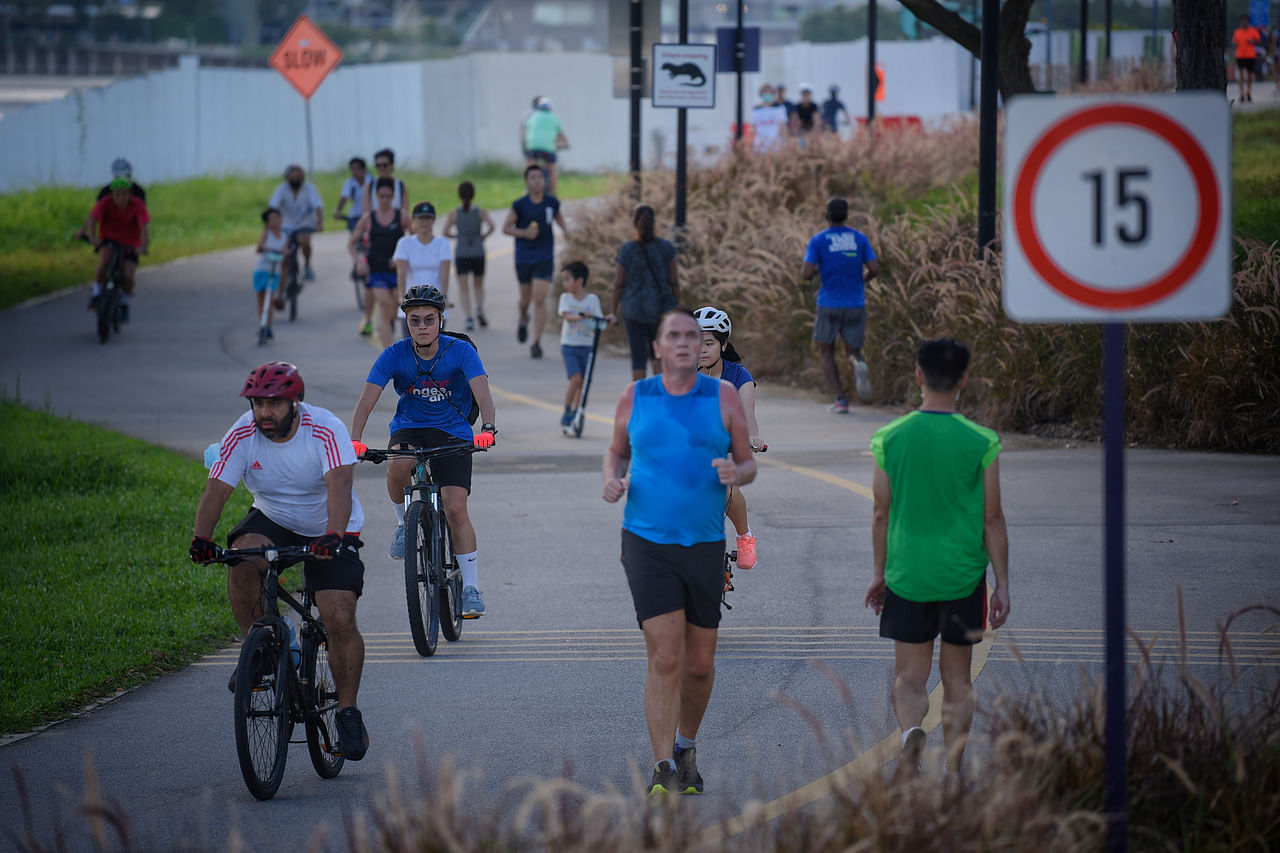Covid-19 'stress test' reveals social capital is strong in Singapore, says DPM Heng
Sign up now: Get ST's newsletters delivered to your inbox

Another key aspect is how Singaporeans showed a civic-mindedness that is worth commending.
ST PHOTO: MARK CHEONG
Follow topic:
SINGAPORE - Singaporeans' willingness to adapt and respond to new advice as fresh medical evidence surfaces on Covid-19 shows the country has the social capital to emerge stronger from the pandemic and deal with future crises, said Deputy Prime Minister Heng Swee Keat.
Another key aspect is how Singaporeans of various backgrounds have rallied to help the less well-off and showed a civic-mindedness that is worth commending, he said in an interview with The Straits Times on Monday (June 8).
Mr Heng, who is also the Finance Minister, was asked what role social capital has played in Singapore's handling of the Covid-19 crisis, following his call on Singaporeans, in Parliament last week, to strengthen social reserves across all levels of society so that the country can emerge stronger from the pandemic.
Singaporeans' willingness to carefully observe precautionary measures, like social distancing, shows "a certain discipline in our people, and also a certain trust - that when our health authorities say this, it is an advice to be taken seriously", he said.
"At the same time, what I'm also very encouraged by is that people are responding to changes - even changes in the advice that has been given - rather well."
He noted that at the start of the pandemic, the idea that asymptomatic patients could transmit the virus was not known even in the medical community, and was established only "after lots of work had been done".
With new evidence, the Ministry of Health and the multi-ministry task force on Covid-19 changed their advice on wearing of masks, and people's willingness to adapt has been invaluable in the fight against Covid-19, he said.
Last Friday, the World Health Organisation (WHO) updated its guidance to recommend that governments ask everyone to wear fabric face masks in public areas where there is a risk of transmission of Covid-19 to help reduce the virus' spread.
The new advice supports countries like Singapore which already mandate face coverings in public settings.
Mr Heng said: "I would say that the willingness of our people to change as the conditions change is a very important quality for us to be able to manage this fast-moving situation.
There is no evidence so far that the virus is mutating, but should this happen, "I am quite certain that the way that we deal with it and the advice on how to deal with it will also change".
Singapore's social reserves have also been evident in the different ways the people have shown their mettle and solidarity with their fellow man in recent months, he added, citing the Silver Generation Ambassadors who have been reaching out to seniors staying at home.
"Many of them (seniors) felt very lonely because you are confined at home during the circuit breaker, and so they ended up speaking for a fairly long period with them," he said. "So I said: 'thank you very much for doing that'."
Many business leaders in Singapore have also been appreciative of the wage support being provided by the Government and have made an effort to keep their workers, while union leaders and the NTUC have been very focused on helping workers, he said.
Others that deserve kudos include volunteers manning the National Care Hotline and counsellors with the social service agencies who are finding new ways to look after people with disabilities and people with special needs, he added.
This is a strength of our society that should be recognised and nurtured, Mr Heng said.
"They are all adapting, and I'm very glad that we have so many volunteers who are working hard at this, and I really want to thank all of them," he said. "This is the social reserves I talked about."

